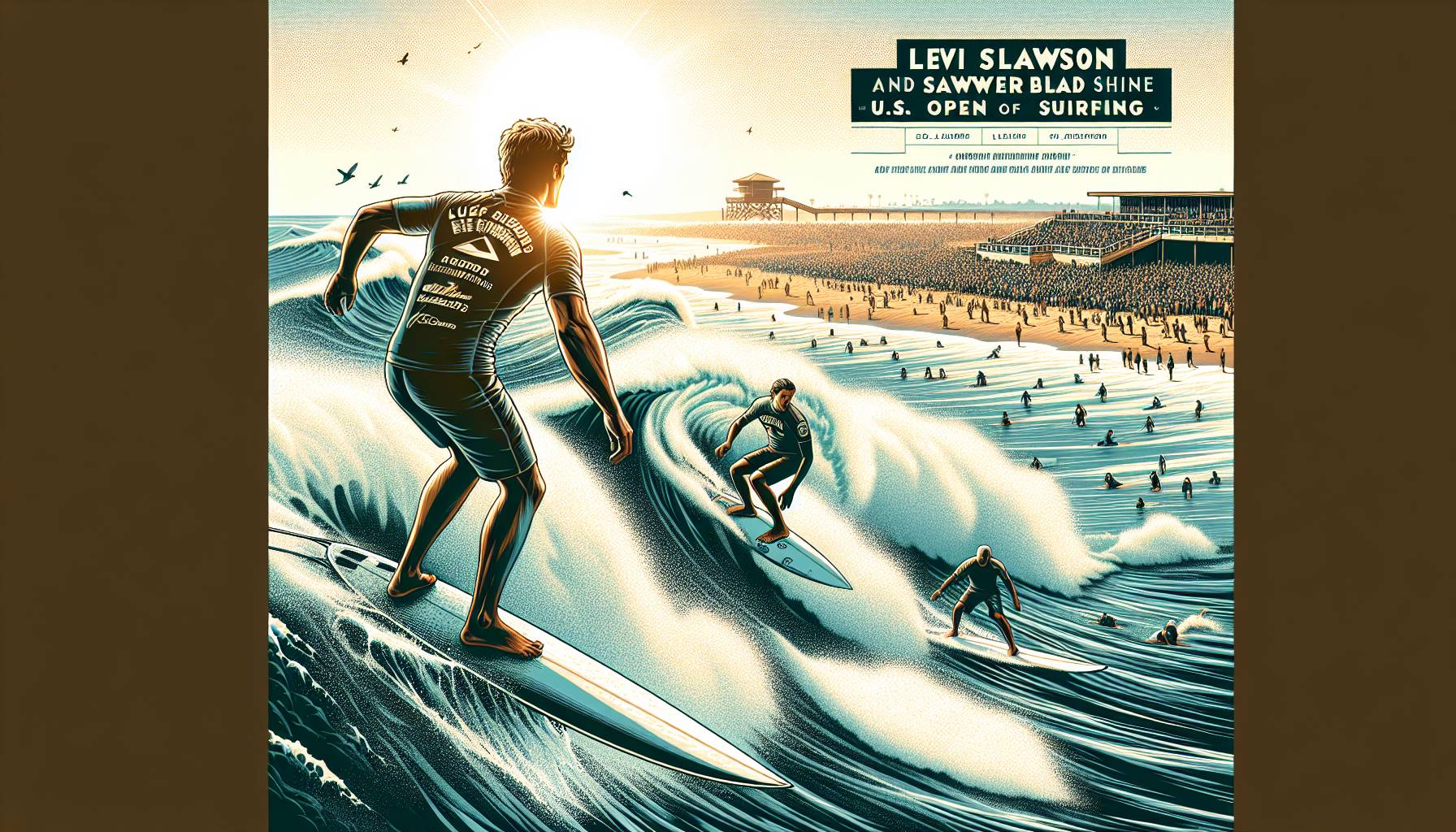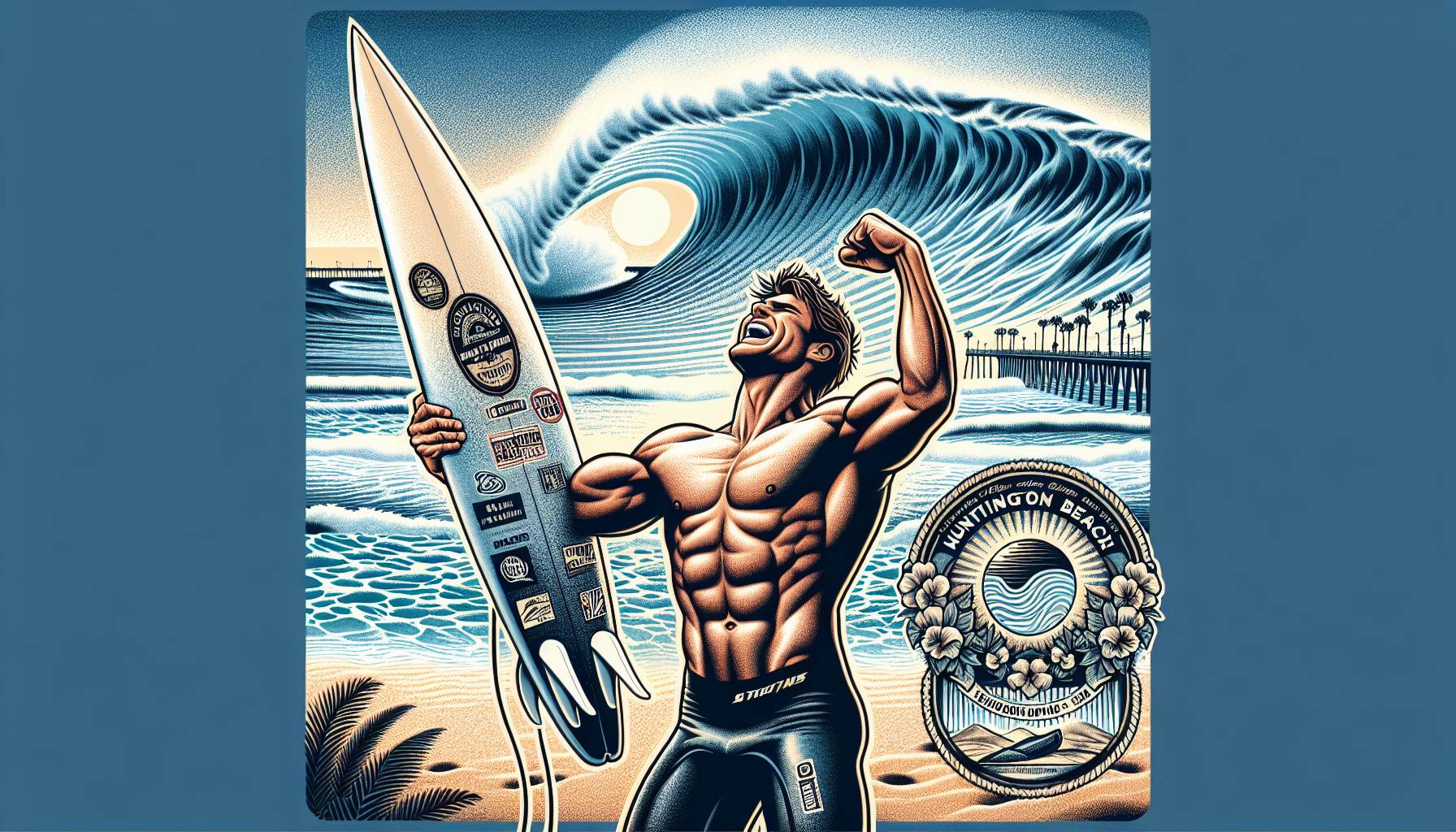Ali Day’s mission for Olympic inclusion
Ali Day, a six-time Coolangatta Gold champion and one of Australia’s most celebrated surf lifesavers, has set his sights on a new challenge: securing surf lifesaving’s place in the Olympic Games. For Day, this mission is deeply personal. Having dedicated his life to the sport, he believes it deserves to be showcased on the world’s biggest sporting stage. His passion for surf lifesaving goes beyond personal accolades; it’s about ensuring that the sport, which has been a cornerstone of Australian coastal culture, receives the global recognition it has long been denied.
Day is not just a competitor; he’s an advocate. He understands that surf lifesaving is more than just a sport—it’s a vital community service that saves lives and promotes water safety. By pushing for Olympic inclusion, Day hopes to highlight the unique blend of athleticism, skill, and public service that defines surf lifesaving. He believes that the sport’s inclusion in the Olympics would not only elevate its profile but also inspire a new generation of athletes to get involved in lifesaving efforts around the world.
“It’s about showing the world what we do,” Day has said in interviews. “We’re not just athletes; we’re lifesavers. We train hard, we compete hard, but at the end of the day, we’re here to protect people and keep our beaches safe.” His commitment to this cause is unwavering, and he’s working closely with Surf Life Saving Australia and other stakeholders to ensure that the sport is given a fair shot at Olympic inclusion.
Day’s vision is clear: he wants to see surf lifesaving on the Olympic program, not just for the glory of competition, but to spread awareness about the importance of water safety and the lifesaving skills that are at the heart of the sport. He believes that the Olympics, with its global reach, is the perfect platform to showcase the sport’s unique combination of athleticism and service to humanity.
Lessons from breaking’s Olympic journey
Ali Day is acutely aware of the challenges that come with pushing for a sport’s inclusion in the Olympic Games. He’s been closely following the journey of breaking, which will make its Olympic debut at the Paris 2024 Games. While breaking’s inclusion has been celebrated by some as a step towards modernising the Olympics, it has also faced its fair share of scepticism and logistical hurdles. Day sees parallels between breaking’s path and the one surf lifesaving might face, and he’s determined to learn from the experience.
One of the key lessons from breaking’s Olympic journey is the importance of building a strong, unified global community. Breaking had to prove that it wasn’t just a niche activity but a legitimate sport with a worldwide following. Similarly, Day understands that surf lifesaving, while deeply ingrained in Australian culture, needs to demonstrate its global appeal. He’s been working with international surf lifesaving organisations to ensure that the sport is not seen as just an Australian pastime, but as a global movement with athletes and lifesavers from all corners of the world.
Another challenge breaking faced was the need to adapt its format for the Olympic stage. The sport had to be presented in a way that was both exciting for spectators and easy to understand for those unfamiliar with it. Day knows that surf lifesaving will need to undergo a similar transformation. While the sport’s traditional events, like the Ironman and Ironwoman races, are thrilling for those who know them, they may need to be streamlined or modified to fit the Olympic format. Day is open to these changes, as long as they don’t compromise the essence of the sport.
“We’ve seen what breaking has gone through, and we’re taking notes,” Day has said. “It’s about finding that balance between staying true to the sport and making it accessible to a global audience. We want people to understand what we do and why it’s important, but we also want them to be entertained.”
Breaking’s journey has also highlighted the importance of media and public relations. The sport’s inclusion in the Olympics was, in part, due to its ability to capture the imagination of younger audiences through social media and digital platforms. Day recognises that surf lifesaving will need to do the same. He’s been actively engaging with media outlets and using his own social media presence to promote the sport, showcasing not just the athleticism involved, but also the lifesaving skills that make it unique.
Ultimately, Day believes that surf lifesaving can avoid some of the pitfalls that breaking has encountered by being proactive and strategic in its approach. He’s committed to ensuring that the sport is presented in the best possible light, both to the International Olympic Committee and to the global audience. “We’ve got a lot to learn from breaking’s journey,” he says, “but we’ve also got something special to offer. Surf lifesaving is more than just a sport—it’s a way of life, and I think the world is ready to see that.”
The future of surf lifesaving on the global stage
As surf lifesaving looks to the future, its potential inclusion in the Olympic Games could be a game-changer for the sport on a global scale. While it has long been a staple of Australian coastal culture, surf lifesaving has the opportunity to expand its reach and influence far beyond the shores of Australia. Ali Day and other advocates believe that the sport’s unique combination of athleticism, teamwork, and public service could resonate with audiences worldwide, especially in an era where water safety is becoming an increasingly important issue.
One of the key factors in surf lifesaving’s global growth will be its ability to attract new participants and fans from countries that may not have a strong tradition of the sport. While Australia, New Zealand, and South Africa have long been powerhouses in surf lifesaving, there are emerging nations in Europe, Asia, and the Americas that are beginning to embrace the sport. Day and other leaders in the surf lifesaving community are working to foster these international connections, helping to build a truly global network of athletes and lifesavers.
“We’re seeing more and more countries getting involved,” Day has noted. “It’s not just about Australia anymore. We’ve got athletes from all over the world who are passionate about surf lifesaving, and that’s what’s going to help us take the sport to the next level.”
In addition to expanding its athlete base, surf lifesaving will need to continue innovating to stay relevant in a rapidly changing sports landscape. The rise of digital media and streaming platforms has given niche sports like surf lifesaving a new way to reach audiences, and Day believes that embracing these technologies will be crucial for the sport’s future success. By showcasing the excitement of surf lifesaving events through live streams, social media, and other digital platforms, the sport can attract a younger, more tech-savvy audience that may not have been exposed to it before.
Another important aspect of surf lifesaving’s future on the global stage is its potential to inspire social change. As climate change leads to rising sea levels and more extreme weather events, the need for skilled lifesavers is becoming more urgent. Surf lifesaving, with its emphasis on water safety and rescue skills, could play a critical role in addressing these challenges. By promoting the sport on a global scale, Day hopes to not only grow its competitive side but also raise awareness about the importance of lifesaving skills in communities around the world.
“It’s not just about winning medals,” Day has said. “It’s about making a difference. If we can get more people involved in surf lifesaving, we can save more lives. That’s what it’s all about at the end of the day.”
As the push for Olympic inclusion continues, the future of surf lifesaving looks bright. With passionate advocates like Ali Day leading the charge, the sport is well-positioned to make its mark on the global stage, both as a thrilling competitive event and as a vital public service. Whether or not surf lifesaving ultimately secures a spot in the Olympic Games, its impact on the world is already being felt, and its future as a global movement seems more promising than ever.
Ali Day’s mission to elevate surf lifesaving to the Olympic stage
Ali Day, a name synonymous with grit and determination in the surf lifesaving world, is on a mission. He’s not just content with dominating the sport himself—he wants to see surf lifesaving take its rightful place on the Olympic stage. For Day, it’s about more than just medals; it’s about recognition for a sport that’s been part of Aussie culture for over a century.
“We’ve got the best beaches, the best athletes, and a sport that’s as tough as they come,” Day says. “It’s time the world saw what we’re made of.”
Day’s passion for surf lifesaving runs deep. He’s spent years battling the elements, pushing his body to the limit in Ironman races, and now he’s ready to take on a new challenge—getting surf lifesaving into the Olympics. And if anyone can do it, it’s Day. He’s got the credentials, the drive, and the backing of a community that’s as tough as the waves they ride.
But it’s not just about the glory. Day knows that Olympic inclusion could mean more funding, more opportunities for young athletes, and a chance to showcase the sport on a global stage. “We’ve got something special here,” he says. “It’s time to share it with the world.”
“It’s not just about us Aussies,” Day adds with a grin. “But let’s be honest, we’d probably clean up in the medals.”
Lessons from breaking’s Olympic journey and surf lifesaving’s future
Ali Day is well aware of the challenges that come with getting a sport into the Olympics. He’s been keeping a close eye on breaking’s journey to the Paris 2024 Games, and it’s been a bit of a rollercoaster. While breaking (yes, breakdancing) made headlines when it was announced as an Olympic sport, it hasn’t been all smooth sailing. There’s been plenty of debate about whether it belongs on the Olympic stage, and Day knows surf lifesaving could face similar scrutiny.
“Look, breaking’s a great example of how tough it can be to get a new sport into the Olympics,” Day says. “It’s not just about being popular or having a strong following. You’ve got to tick all the boxes—global appeal, a clear structure, and the ability to put on a show that people want to watch.”
For surf lifesaving, the challenge is to prove that it’s more than just an Aussie pastime. Sure, we’ve got the best beaches and some of the toughest athletes, but the sport needs to show it can attract a global audience. Day’s confident it can. After all, who wouldn’t want to watch athletes battling the surf, sand, and each other in a high-stakes race?
But there’s more to it than just putting on a good show. Surf lifesaving will need to navigate the politics of the Olympic world, something breaking has had to learn the hard way. “It’s not just about being the best at what you do,” Day explains. “You’ve got to play the game, get the right people on board, and make sure your sport fits into the Olympic vision.”
“We’ve got the excitement, the skill, and the drama,” Day says. “Now we just need to convince the rest of the world that surf lifesaving deserves its shot.”
And while breaking’s inclusion in Paris has sparked plenty of debate, Day sees it as a positive sign. If a sport as niche as breaking can make it, why not surf lifesaving? “It’s all about showing that we belong,” Day says. “We’ve got the athletes, we’ve got the history, and we’ve got the passion. Now it’s time to take it to the next level.”

